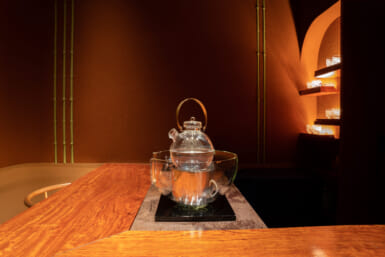In the past few years, tourists in Japan have been hitting the headlines for bad behavior. YouTubers like Johnny Somali have even been arrested for nuisance actions, like trespassing and shouting offensive things at local people. Others have attempted to travel up and down the country without buying a ticket.
So, what makes a good tourist? And how do we avoid offending anyone, especially in a country that regards manners as an important cultural currency? Here’s our guide to general Japanese etiquette.
The Basics
As a visitor to someone else’s country, it’s important to pay attention to what is happening around you and how the local people are behaving. Japan is no different, and sometimes the right way is literally signposted. If a sign has a picture of a mobile phone with a big cross on it, it is obvious what that means. You needn’t speak the language to figure out the big picture.
“Watch what the locals do and act accordingly,” says Peter Carnell, a freelance guide and podcaster based in Nagano. “This applies to visiting any country. Many guests ask me about the rules in Japan and what to do and not to do. I tell them that as foreigners, Japanese do not expect us to know all the rules. So in that regard, not to worry too much. But there are a couple of basic ones to respect.”

Japanese Public Transport Manners
There are several unspoken (and spoken) rules while riding Japanese trains.
- Don’t answer phone calls. Your voice naturally rises when you’re on the phone. Hearing someone chatting loudly is rather annoying for those around.
- No eating on trains. Even though you may think the smell of your tuna rice ball is fine, the people around you might not agree, especially if you drop pieces on the floor.
- Don’t spread out. Sit with your legs close together so that you don’t touch the person next to you.
Put your bag on your lap or on the overhead shelf. Putting it on the floor is a hazard and takes up space, and Japanese trains and buses can get very crowded. - Talk quietly. You are in a confined space and your voice will carry.
Table and Restaurant Manners
There are various ways to respect the local customs.
- No tipping. Even though the customer service in Japan is considered among the best in the world, it doesn’t come at an extra cost.
- Clear up after yourself. Carnell explains: “Try to leave your table in an orderly fashion for staff to handle.”
- Use your chopsticks properly. Namely: don’t pass food with your chopsticks and don’t leave your chopsticks straight up in your bowl. These points are considered bad manners as they evoke funeral customs.

Shrine and Temple Manners
Shrines are holy places, so it is important to show respect when visiting them.
- Look out for places you are allowed to walk. They should be signposted. If you aren’t sure, don’t do it.
- Dress to impress (respectfully). In Japan, people don’t tend to show their shoulders, and if you do this in a shrine setting you may encounter more people staring at you than you would when out on the street.
- Be quiet. Shrines are calm places, so respect that.

General Manners for Out and About
Even just walking can sometimes cause problems. Imagine rushing to work, you’ve got a brisk pace on and suddenly your way ahead is blocked by a group of people with shopping bags taking pictures. Get out of the way, people.
According to Carnell, Japanese people tend to “avoid open conflict,” so tourists should be mindful of that and try to avoid complaining unless absolutely necessary.
- Littering. Don’t do it. In Japan and especially Tokyo, trash cans are limited. Many Japanese people take their garbage home. Behave like a local and bag it up, ready to deposit with your other trash when you return, or into a convenience store trash can if you bought the items at that shop.
- Photographs. We understand that you may want to photograph everything you see but resist the urge if you aren’t sure that it’s OK. This applies to people too. Yes, that little person riding the bike carrying balloons and wearing a tiger mask looks very photogenic, but they may not want to be photographed. Think of religious sites. Be considerate.
- Respect for nature. There have been instances of tourists damaging cherry blossom flowers and branches, a definite faux pas.









